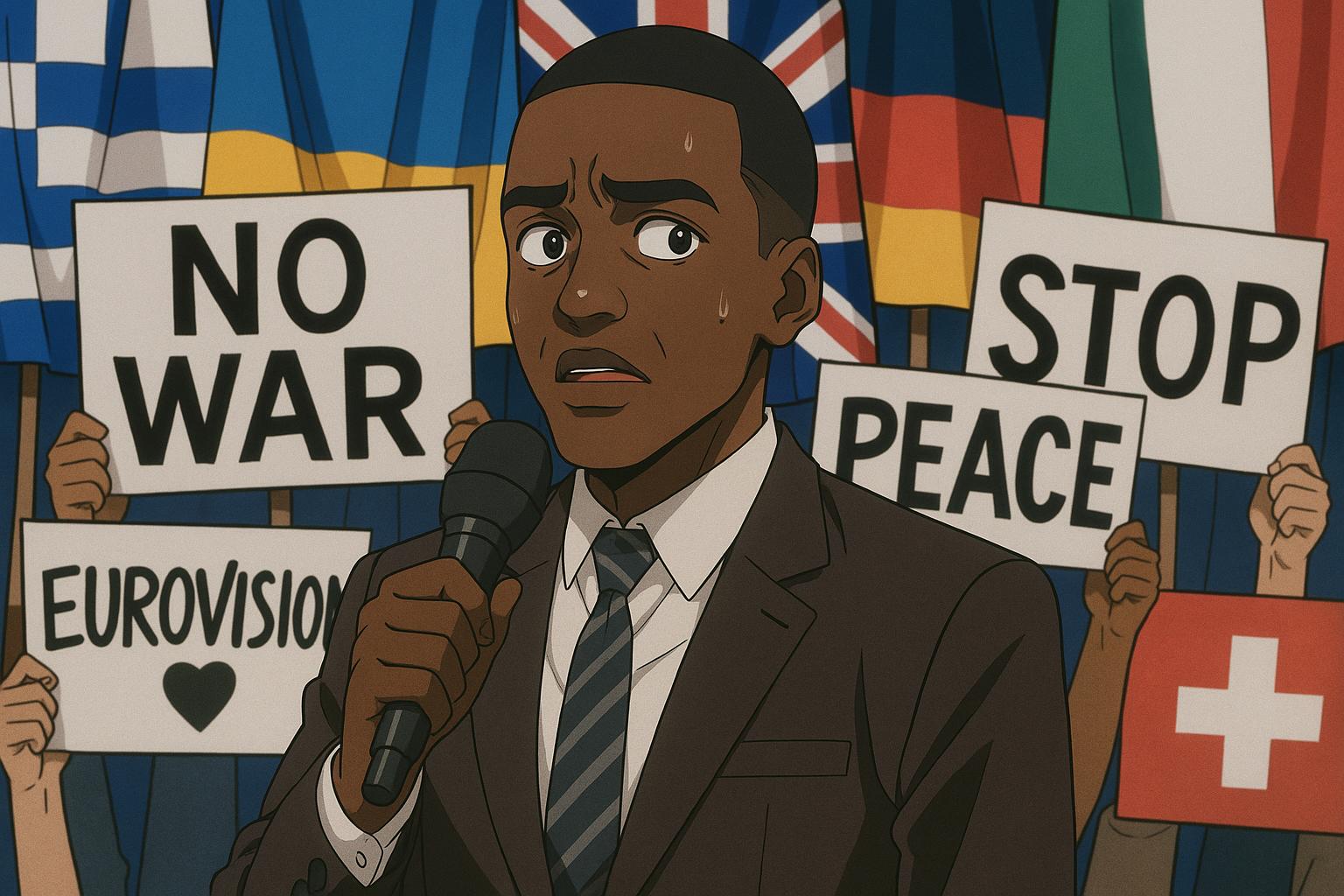Speculation surrounding Ncuti Gatwa's recent withdrawal from his role as the UK spokesperson for Eurovision has stirred significant controversy and concern among BBC executives. The actor, renowned for his portrayal of the Doctor in the popular series Doctor Who, was expected to reveal the UK's jury votes during the Grand Final in Basel, Switzerland, on May 17. However, shortly before the announcement, he stepped back from his duties, sending producers into a state of uncertainty and frustration.
Reports suggest that this decision may have been influenced by recent geopolitical events, particularly the participation of Israeli contestant Yuval Raphael, who made headlines after surviving the October 7 Hamas attack. Sources indicate that some at the BBC feared Gatwa could change his mind, prompting them to have Sophie Ellis-Bextor on standby as a replacement. The last-minute nature of Gatwa's withdrawal has left many questioning the motivations behind his decision, especially in light of his vocal support for Palestinian causes. His Instagram posts, which included images of pro-Palestine graffiti and fundraising links, have drawn both admiration and criticism from fans, with some expressing dismay at his involvement in a contest viewed by many as politically fraught.
Demands to boycott Eurovision in light of its acceptance of Israel have gained traction within certain activist circles. Pro-Palestinian advocates have condemned the contest's decisions, including the ban imposed on Pride flags. In this context, some fans voiced their discontent, framing Gatwa's association with Eurovision as problematic. “I would usually be excited, but I'm boycotting until Israel is given the same treatment as Russia,” remarked one follower, highlighting the charged atmosphere around the event.
Initially appointed to chair the UK’s Eurovision jury, Ellis-Bextor had also stepped down due to "unforeseen circumstances," leading to the subsequent appointment of actor George Ure as her replacement. Ure, an accomplished figure within the theatrical landscape, now leads a panel that evaluates various performance metrics, contributing to 50% of the overall outcome for the UK's entry.
The BBC has attempted to clarify the disconnect between Gatwa's pro-Palestinian views and his withdrawal, asserting that it was merely a coincidence that his decision followed the qualifying results of Israel. Their official statement noted: “Due to unforeseen circumstances, unfortunately, Ncuti Gatwa is no longer able to participate as spokesperson during the Grand Final.” Nevertheless, the timing has invited scrutiny, and Gatwa has not publicly commented on the exact reasons for his exit.
This unfolding situation illustrates the complex interplay of celebrity, politics, and public sentiment within the realm of popular entertainment. As the date for Eurovision approaches, the implications of these controversies continue to resonate, creating a multifaceted dialogue spanning art, activism, and the media landscape.
Whether Gatwa's stance and the reactions it provoked reflect a broader cultural shift remains to be seen, but one thing is clear: the intersection of personal beliefs and public roles has sparked important conversations that are far from resolved.
Reference Map
- Paragraph 1: 1
- Paragraph 2: 1, 4, 5
- Paragraph 3: 1, 5
- Paragraph 4: 2, 3
- Paragraph 5: 1, 5
- Paragraph 6: 1, 5
- Paragraph 7: 1, 2, 3
Source: Noah Wire Services
